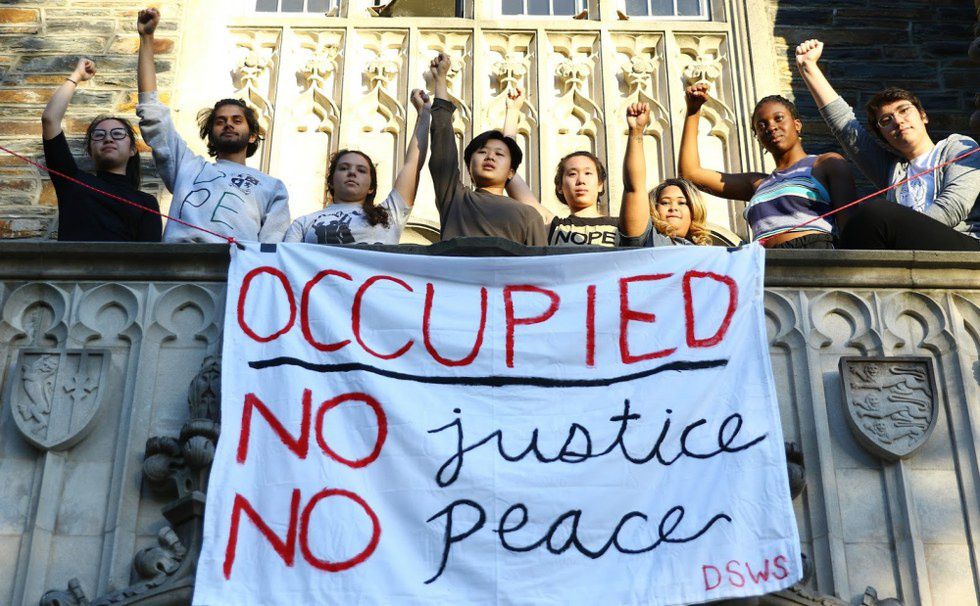Students, not just at Duke, but across the globe, invest so much time—measured in sweat, tears and sometimes even blood—in order to attain the prestigious benchmark of a college degree. College presents itself as a universal right of passage into the adult world, a demarcation of status and a privileged entryway upon the path of this “Renaissance” enlightenment.
But at what cost?
What you don’t hear when you embark into your economics or pre-med coursework is that the current campus culture perpetuates issues like sleep deprivation, anxiety over grades or internships, competitiveness that requires students to emphasize the importance of GPA over things like relationships or personal and mental health and overwhelming feelings of inadequacy. Comparison to others is built into the system. The very same person who serves as your study buddy for Organic Chemistry could turn out to be the one applicant who takes your coveted seat at the Duke Medical School.
The question still burns: what’s the point of it all: is it worthwhile?
I’ve struggled with this. Although we do a lot of things with great love, energy and enthusiasm here… we are far from perfect.
Duke is no city upon a hill where everything is nice, bright, and happy-go-lucky. Right now some of our own are trying to remove three upper-level administrators from their offices.
Right now there are students groups who are endowed more money for “programming” than some student’s families bring in as an annual household income (and yet we buy massage chairs).
Right now there is more earnest investment in Duke’s construction than there is in the employees, students or the Durham community (a near total of 100 Million). Right now, we’re not perfect.
This environment doesn’t sustain me. The education doesn’t keep me here. The name doesn’t prevent my departure. The debt certainly won’t either.
The people keep me here. My education is a lived experience each day, through every single person I am able to engage with on a deeper level. My degree is more than a literal humanities degree in English, but an actual course of study dedicated to growing and sharing my human heart.
My education consists of my relationships.
Many high-achieving students have been spoon-fed a mantra of extraordinary singularity throughout their entire life:
“You’re so talented!”
“You’re going to do big things some day.”
“I wish I was as smart as you.”
Coming to a school like Duke we lose some of this shimmer that has identified us for so long by the very fact that so many people around us radiate this same glow.
The natural response is defensive, secretive, competitive and ultimately hateful. Why do we need to outshine in order to have a sense of identity or purpose? Why can’t we work to shine together and lift people up instead, as one?
This is what is at the heart of a liberal arts education.
Byron Williams argues as follows:
“Liberal arts are where we learn how to be citizens. Staying within the parameters of the Constitution we acquire an appreciation to paradoxically support issues that we might otherwise oppose. It is, in the words of theologian Paul Tillich, where the questions become more important than the answers”
…The questions, becoming more important than the answers…
…The process outlasting the attractive glimmer of the end goal…
This education starts in our relationships, and summarily in our conversations and communities. It’s a ripple effect.
I was left wanting more from my Duke experience after freshman year. This isn’t a “more” that was ever handed out to me because it’s a “more” that society tends to devalue and push to the side.
This “more” is authentic friendship and community.
This “more” is an education surrounded by questions, and not answers.
This “more” is a student set upon searching and discovering, rather than having already discovered and searching for a justification to prove one’s self right.
This “more” is my hope for the future.
It’s true; a lot of what happens on a college campus requires selfishness. But don’t forget about the power of the other. The true intent of learning how to be a citizen is learning how to live in communion with others. This is what society represents, togetherness, a sense of unity and common purpose.
This change in mindset about what a college education, a Duke education, represents is not impossible. It’ll be inevitable, actually, if we start simply through opening up ourselves to others and remembering that this education is about more than just grades and an institution's dirty laundry, but about people and our greater purpose in this albeit crazy, but beautiful world.






















